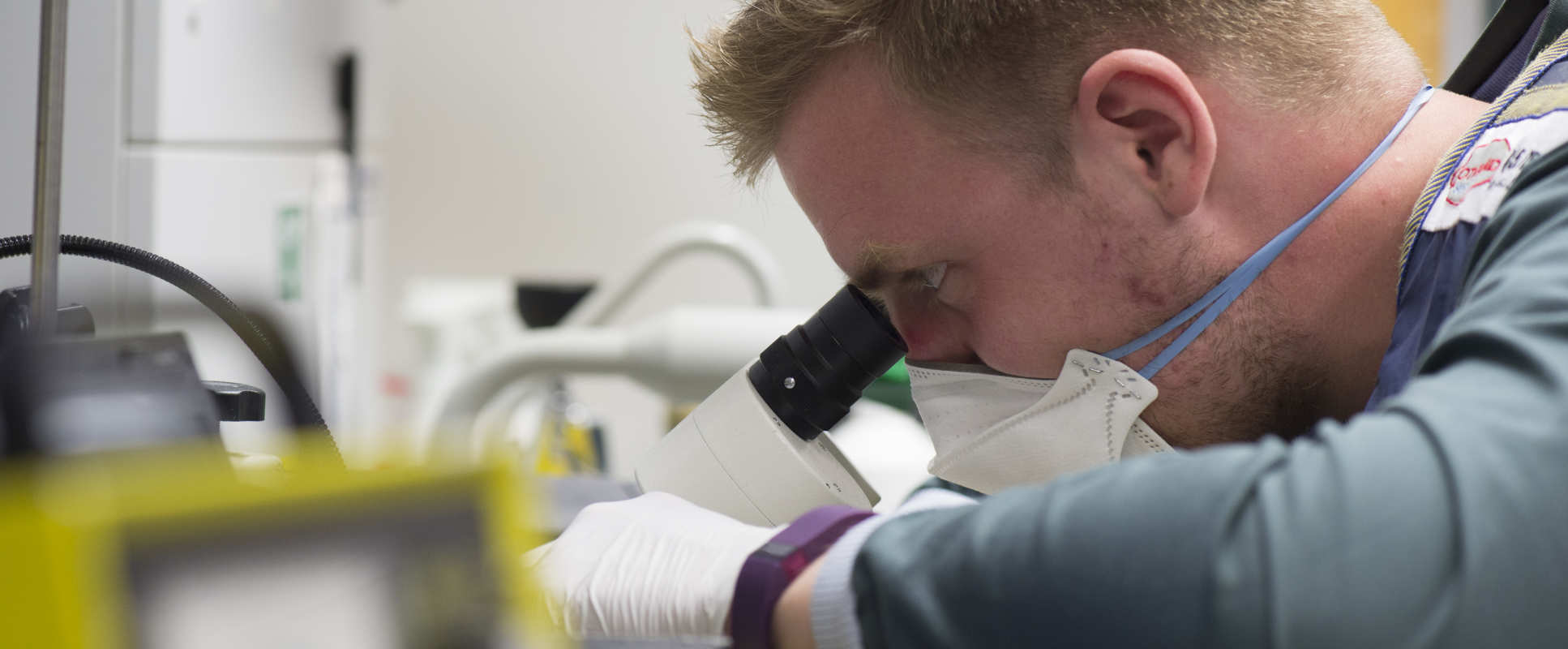
Summary of current research
Cardiothoracic Pharmacology
Our research focuses on vascular function across all organ systems. Current projects include: (i) cardiovascular side effects of cyclooxygenase-2 inhibitor drugs, (ii) roles of prostacyclin and thromboxane in thrombosis, (iii) bioactive amines and nitric oxide in health and disease, (iv) utility of human vascular cells derived from circulating progenitors, (v) nanomedicines for the delivery of cardiovascular drugs and (iv) cross-talk between airways and the pulmonary vasculature.
Researchers: Professor Jane Mitchell, Dr Nicholas Kirkby.
Cell-Cell Adhesion Signalling
We investigate the signalling mechanisms by which epithelial cells adhere to each other and that underpin tissue architecture and function. Such knowledge contributes towards our understanding of cancer cell dissociation and metastasis We focus on signalling by Rho small GTPases that control epithelial differentiation, cell-cell contact stability and epithelia-specific cytoskeleton remodelling.
Researcher: Dr Vania Braga.
Iron Homeostasis
Overarching interest in disrupted iron homeostasis with implications for critical illness, respiratory and cardiovascular diseases. Currently studies are centred on remodelling in pulmonary vascular cells with relevance for pulmonary artery hypertension and Esienmenger’s Disease with Dr S John Wort, and medical device development to limit the effects of haemolysis in cardiopulmonary bypass procedures.
Researcher: Dr Gregory Quinlan.
Lung development and disease
We seek to understand the cellular and molecular events required to generate the lungs and to use this knowledge to identify treatments that can be used to repair damaged lung tissue.
Researchers: Dr Charlotte Dean, Professor Mark Griffths, Dr Matthew Hind. View the Lung development and Repair group webpages for more information.
Matrix-Activated Receptors
We are interested in the molecular mechanisms of receptor activation and primarily focus on understanding kinase activation of the discoidin domain receptors (DDRs), key drug targets in variety of diseases including organ fibrosis, inflammation, osteoarthritis, atherosclerosis and many different types of cancer. Our work has defined a unique mechanism of transmembrane signalling whereby ligand binding induces DDR1 kinase activity through receptor recruitment into signalling clusters, in which phosphorylation occurs between different dimers.
Researcher: Dr Birgit Leitinger.
Muscle wasting in disease
We investigate the mechanisms that contribute to chronic and acute muscle wasting and factors that predict the susceptibility to muscle wasting in patients. We focus on the control of muscle cell phenotype by microRNAs and on their relevant mechanisms that control muscle protein turnover, mitochondrial function and the susceptibility to inflammatory signalling.
Researchers: Dr Paul Kemp, Professor Mark Griffths.
Platelet Biology
We focus on identifying mechanisms of cardiovascular risk in the contexts of HIV and airborne pollution and the role of endothelial mediators in providing physiological cardio-protection. The team works in close collaboration with clinical partners at Chelsea and Westminster Hospital and interfaces with industry.
Researcher: Dr Mike Emerson.
Pulmonary Hypertension
Pulmonary arterial hypertension describes a rare set of conditions associated with remodelling of the small pulmonary arterioles. We are interested in the underlying mechanisms of remodelling. Current projects include investigating the roles of disruption of the iron/hepcidin axis, histone methylation, abnormal GDF-15 signalling and the effect of BMPR2 on response of endothelial cells to shear stress.
Researchers: Dr S John Wort, Dr Anne Burke-Gaffney.
Collaborators: Dr Greg Quinlan, Dr Paul Kemp and Professor Ian Adcock.